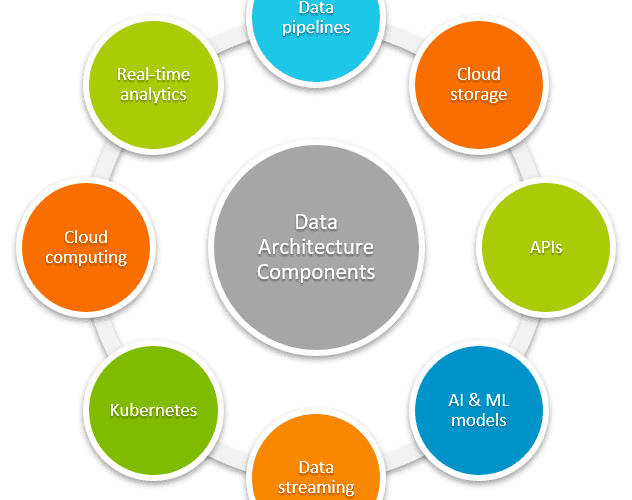
Data engineering has quickly become one of the most sought-after skills in the tech industry. With the rapid growth of data-driven decision-making, businesses are constantly looking for experts who can design, build, and manage systems that enable the smooth flow and storage of data. But if you’re considering making a career switch or advancing your current skillset, you might be wondering: can I learn data engineering in three months?
- What is Data Engineering
- Is it Possible to Learn Data Engineering in Three Months?
- What You’ll Need to Learn in 3 Months
- How to Accelerate Your Learning
- Conclusion
In this blog post, we’ll explore whether it’s feasible to learn data engineering in just three months, what topics you need to cover, and how you can structure your learning path for maximum effectiveness.
What is Data Engineering?
Before diving into the specifics of how to learn data engineering, let’s first define what it is. Data engineering is the process of designing, constructing, and maintaining systems and infrastructure that allow large-scale data collection, storage, and analysis. The role of a data engineer is pivotal because they build the architecture that allows data scientists and analysts to analyze data and derive insights.
Data engineering involves a combination of software engineering, data architecture, and systems engineering. Professionals in this field focus on creating pipelines for collecting, processing, and storing data efficiently. They also deal with data governance, ensuring data is secure, consistent, and accessible.
Key tools and technologies that data engineers typically use include:
- Databases (SQL, NoSQL)
- Data Warehouses (e.g., Google BigQuery, Snowflake)
- ETL Pipelines (Extract, Transform, Load)
- Cloud platforms (e.g., AWS, GCP, Azure)
- Big Data technologies (e.g., Hadoop, Spark)
Is it Possible to Learn Data Engineering in Three Months?
Now, let’s answer the burning question: Can you really become proficient in data engineering in just three months?
The short answer is: it depends.
The answer hinges on several factors:
- Your Background – If you already have a background in computer science, software development, or a related field, you may find it easier to grasp core data engineering concepts quickly. However, if you’re completely new to technical topics, you’ll need more time to build foundational knowledge in programming, databases, and cloud platforms.
- Learning Goals – Do you want to become a job-ready data engineer in three months, or are you aiming to gain a general understanding of the field? The former is a more ambitious goal, while the latter is more achievable. You can certainly get a solid introduction to data engineering in three months, but mastering it would require more time and hands-on experience.
- Commitment – If you’re able to dedicate several hours a day to learning, you can cover a lot of ground in three months. But if you only have a few hours per week, it might be harder to achieve a deep understanding.
- Resources – Having access to quality learning materials and mentorship can accelerate your progress. With the right resources—such as online courses, textbooks, projects, and communities—you can learn more efficiently.
What You’ll Need to Learn in 3 Months
To make the most of your three-month learning journey, you’ll need to focus on the essential topics in data engineering. Here’s a roadmap of what you should aim to cover, broken down into weekly segments.
Week 1-2: Fundamentals of Programming & Databases
If you’re new to programming, start with Python, as it’s one of the most widely used languages in data engineering. Spend your first two weeks getting comfortable with:
- Basic Programming Concepts – Learn variables, loops, conditionals, functions, and data structures like lists and dictionaries.
- SQL Basics – SQL is fundamental for working with relational databases. Learn how to query, filter, join, and aggregate data from databases using SQL.
- Version Control with Git – As you progress, learning Git will help you track changes in your code and collaborate with others.
Week 3-4: Data Storage and Databases
Now that you’ve mastered the basics of programming and SQL, dive deeper into:
- Relational Databases (RDBMS) – Get familiar with databases like PostgreSQL, MySQL, or SQLite, and understand how they store and manage structured data.
- NoSQL Databases – Explore NoSQL databases like MongoDB and Cassandra. These are essential for working with unstructured data.
- Database Design – Learn how to design databases, create schemas, and normalize data to avoid redundancy.
Week 5-6: Data Pipelines and ETL
Data engineers spend a significant amount of time building and maintaining ETL pipelines (Extract, Transform, Load). In this phase of your learning, focus on:
- ETL Concepts – Understand the different stages of an ETL pipeline, how to extract data from various sources, transform it into a usable format, and load it into a data warehouse.
- Data Transformation with Python – Learn how to manipulate and clean data using Python libraries like Pandas.
- Apache Airflow – Apache Airflow is a popular tool for automating workflows. Familiarize yourself with its basic concepts to orchestrate your data pipelines.
Week 7-8: Big Data and Distributed Computing
At this point, you should start exploring tools and technologies that handle large-scale data:
- Apache Hadoop – Learn the basics of Hadoop, a framework that processes vast amounts of data across distributed computing environments.
- Apache Spark – Spark is a powerful tool for big data processing. Learn how to use Spark for distributed data processing and analytics.
- Data Lakes – Understand what a data lake is, how it differs from a data warehouse, and how to work with unstructured data.
Week 9-10: Cloud Computing and Data Warehousing
In today’s world, most data engineering work is done in the cloud. Here’s what you’ll need to cover:
- Cloud Platforms (AWS, GCP, Azure) – Learn the basics of cloud computing and explore how to use cloud services like AWS S3, AWS Redshift, Google BigQuery, and others.
- Data Warehouses – Learn about the importance of data warehouses and how to manage large-scale structured data in the cloud.
- Serverless Technologies – Familiarize yourself with serverless services like AWS Lambda, which can make your data pipelines more scalable and cost-effective.
Week 11-12: Real-World Projects & Problem Solving
In your final month, focus on applying everything you’ve learned:
- Build End-to-End Data Pipelines – Create simple data pipelines that extract data from APIs, transform it, and load it into a database or data warehouse.
- Work on Cloud-based Projects – Set up a data lake or data warehouse in the cloud and populate it with data.
- Hands-On Practice – The key to becoming proficient in data engineering is hands-on practice. Build as many small projects as you can to reinforce your knowledge.
- Explore Data Engineering Best Practices – Learn about monitoring, logging, error handling, and optimization in data pipelines.
How to Accelerate Your Learning
While the timeline above offers a good structure, there are several strategies you can use to accelerate your learning:
- Focus on Hands-On Learning – Theory is essential, but practical experience is what will solidify your understanding. Build projects, contribute to open-source projects, and apply your skills to real-world problems.
- Join Online Communities – Communities like Stack Overflow, Reddit, and GitHub offer support from experienced professionals. You can ask questions, share your progress, and get feedback from others.
- Leverage High-Quality Resources – Use platforms like Coursera, Udacity, and edX for structured learning, or dive into books like Designing Data-Intensive Applications by Martin Kleppmann.
- Seek Mentorship – If possible, find a mentor in the data engineering field who can provide guidance, review your work, and suggest resources to speed up your learning.
Conclusion: Can You Learn Data Engineering in 3 Months?
Learning data engineering in three months is challenging but possible with a structured approach, dedication, and the right resources. While mastering the field will take years of experience, you can definitely gain a solid foundational understanding in this time frame. Focus on the essential skills—programming, databases, ETL pipelines, and cloud platforms—and make sure you apply your knowledge through hands-on projects.
By the end of three months, you should have a working knowledge of the tools and concepts that data engineers use daily, and you’ll be well on your way to becoming proficient in this rapidly-growing field. Keep in mind, the learning journey doesn’t stop after three months. Data engineering is an evolving field, and continued learning and practice are key to staying ahead.
Are you ready to start your data engineering journey? Let’s get to work!




